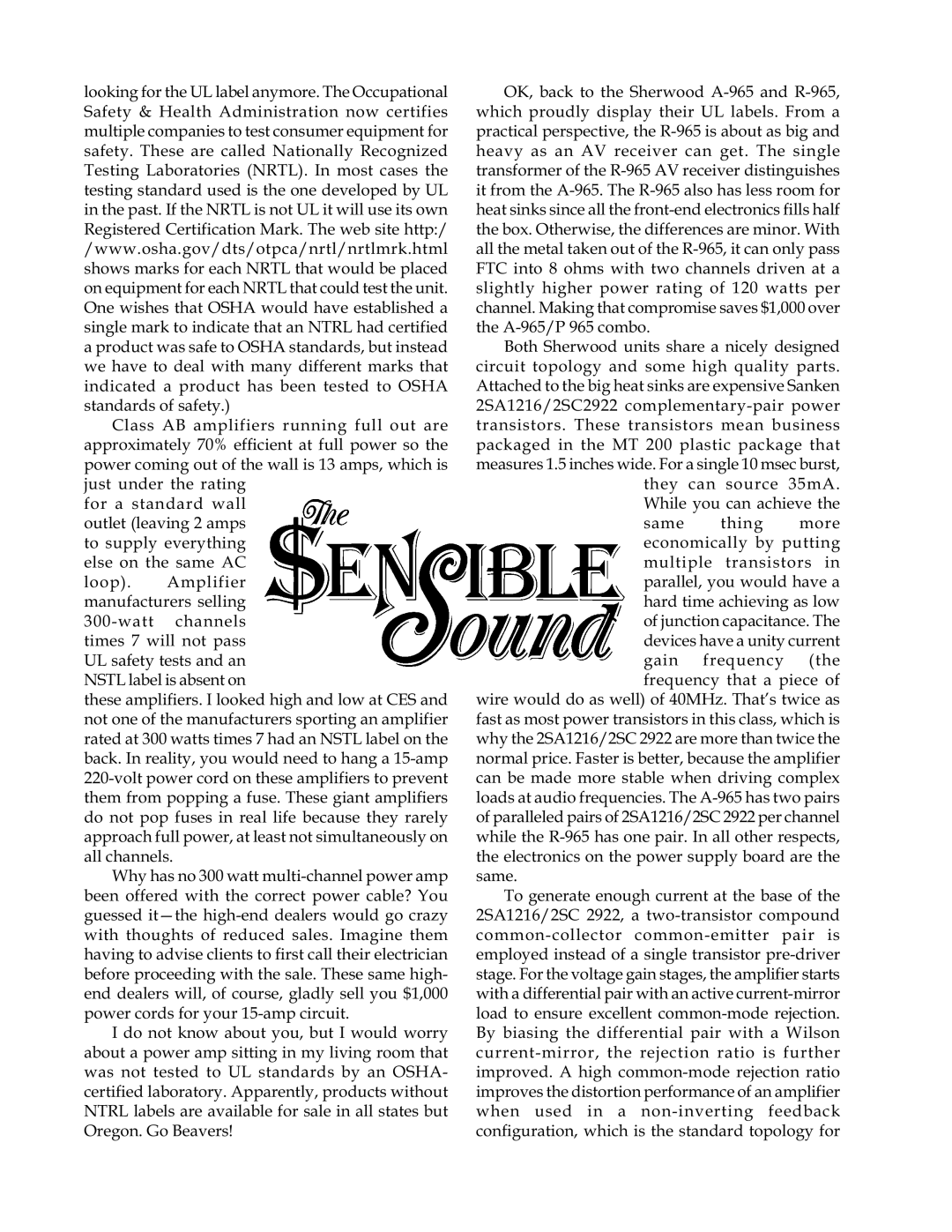A 965 specifications
The Sherwood A 965 is a versatile and robust audio receiver that has garnered a reputation among audio enthusiasts for its high-quality performance and advanced features. Designed for home theater and music listening, the A 965 combines traditional analog technology with modern digital enhancements, making it a standout choice for anyone looking to elevate their audio experience.One of the main features of the Sherwood A 965 is its high power output, delivering 100 watts per channel into 8 ohms, which ensures that it can drive a wide range of speakers with ease. This power output is complemented by a low total harmonic distortion, which means listeners can expect clean and clear sound reproduction even at high volume levels. Whether it's for casual listening or an immersive movie night, the A 965 is designed to accommodate various audio needs.
In terms of connectivity, the Sherwood A 965 offers a wide range of inputs, including multiple HDMI ports, optical and coaxial digital inputs, as well as standard RCA inputs. This extensive connectivity allows users to connect various sources such as Blu-ray players, gaming consoles, and streaming devices, providing ultimate flexibility in how they use the receiver. Additionally, the receiver supports popular surround sound formats, including Dolby TrueHD and DTS-HD Master Audio, enhancing the home theater experience.
Another key characteristic of the A 965 is its built-in advanced audio technologies. The digital signal processing allows the receiver to optimize sound performance, adapting the output to suit different listening environments. This ensures that whether you're in a small room or a larger space, the audio quality is consistently impressive.
Moreover, the Sherwood A 965 features a user-friendly interface, making it easy for anyone to navigate through settings and options. The included remote control adds convenience by allowing users to adjust settings from the comfort of their seat.
Build quality is another standout aspect of the Sherwood A 965. The receiver is constructed using durable materials, ensuring that it can withstand the rigors of daily use while maintaining its aesthetic appeal.
In summary, the Sherwood A 965 is a feature-rich audio receiver that successfully blends robust power, versatile connectivity, advanced technologies, and user-friendly design. It stands as a compelling choice for audio aficionados seeking to enrich their listening experience, whether for music or film.

